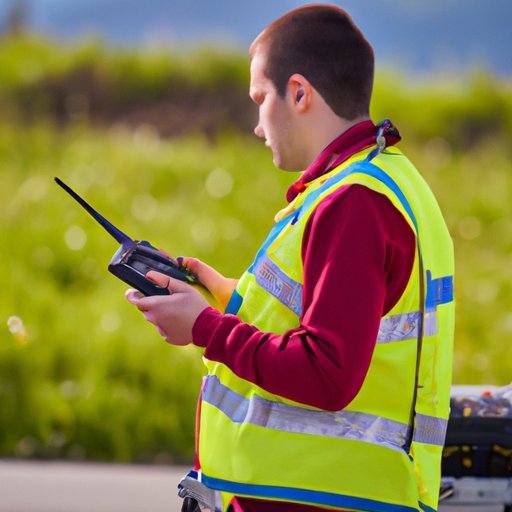
Introduction
Dispatchers play a critical role in emergency services by facilitating communication between first responders and those in need of assistance. If you have excellent interpersonal skills, attention to detail, and a willingness to work under stress, a career as a dispatcher may be perfect for you. In this article, we’ll cover everything you need to know to become a successful dispatcher, including the skills you need, training tips, real-life insights from experienced dispatchers, the impact of technology, crisis management strategies, and tips for career advancement.
The Essential Skills You Need to Become a Successful Dispatcher
Interpersonal skills are a crucial component of a successful dispatcher. Dispatchers need to communicate effectively with callers and maintain a calm demeanor even during high-pressure situations. Time-management skills are equally important, as dispatchers must be able to process information quickly and accurately. Attention to detail is also critical, as dispatchers must ensure that first responders receive accurate information quickly. To improve these skills, it is essential to practice active listening and problem-solving. Additionally, time-management techniques such as proper planning and prioritizing workflow can be helpful.
Navigating Dispatcher Training: Tips for Success
Training programs for aspiring dispatchers are available in community colleges, technical schools, and training organizations. It’s important to research these programs and choose one that best meets your needs and career goals. Ideally, look for a program that covers all aspects of dispatching, such as call-taking, radio communication, and handling emergency situations. Once you’ve chosen a program, commit to learning as much as you can from it. This includes attending all classes, taking notes, and asking questions. Finally, obtaining certification from a recognized organization such as APCO or NENA can help boost your credibility and job prospects.
Real-Life Insights from Working Dispatchers: The Pros and Cons of the Job
Interviews with experienced dispatchers reveal both the challenges and rewards of the job. Challenges include the high stress levels, shift work, and exposure to traumatic events. On the other hand, being a dispatcher provides a sense of satisfaction in helping people in crisis situations, as well as a range of opportunities for professional and personal growth. In terms of personal traits and qualities, dispatchers need to be resourceful, adaptable, and able to work well as part of a team. Additionally, excellent problem-solving and communication skills are essential.
The Evolution of Dispatch: How Technology is Changing the Game
Technology is a driving force in the evolution of emergency services. Dispatchers need to be familiar with the latest technology to stay competitive and efficient. Some new technologies can be very beneficial, such as computer-aided dispatch systems that improve response times. Still, technology can also be a drawback if it causes increased workload or malfunctioning. To adapt to the latest technology tools, dispatchers need to be open-minded and enthusiastic about trying new things. They should stay informed about the latest releases and updates and try to apply new tools to improve their work processes.
Dispatching in a Crisis: Strategies for Staying Calm Under Pressure
It’s essential for dispatchers to maintain a professional demeanor, even when faced with a crisis. Strategies for managing stress and staying calm can be very useful, such as deep breathing exercises, visualization techniques, and positive self-talk. Additionally, it’s important to avoid distraction, stay focused, and maintain clear thinking. Keeping a professional attitude and treating each call with the utmost seriousness can help you maintain composure and provide effective guidance to first responders.
Next Steps: Advancing Your Career as a Dispatcher
Career advancement options for experienced dispatchers include supervisor, trainer, manager, and director positions. Leadership and effective communication skills are essential for advancing in dispatcher roles. Additionally, continuing education and networking can open doors to new opportunities. Developing strong problem-solving skills and critical thinking abilities can also enhance career advancement prospects and work performance.
Conclusion
In conclusion, dispatching is a rewarding career path for those with excellent interpersonal and time-management skills and a desire to help others. Training, real-life experience, and technology skills are critical components of a successful dispatcher’s toolkit. By staying calm under pressure and keeping up with new advancements, you can succeed in this dynamic and essential field.





